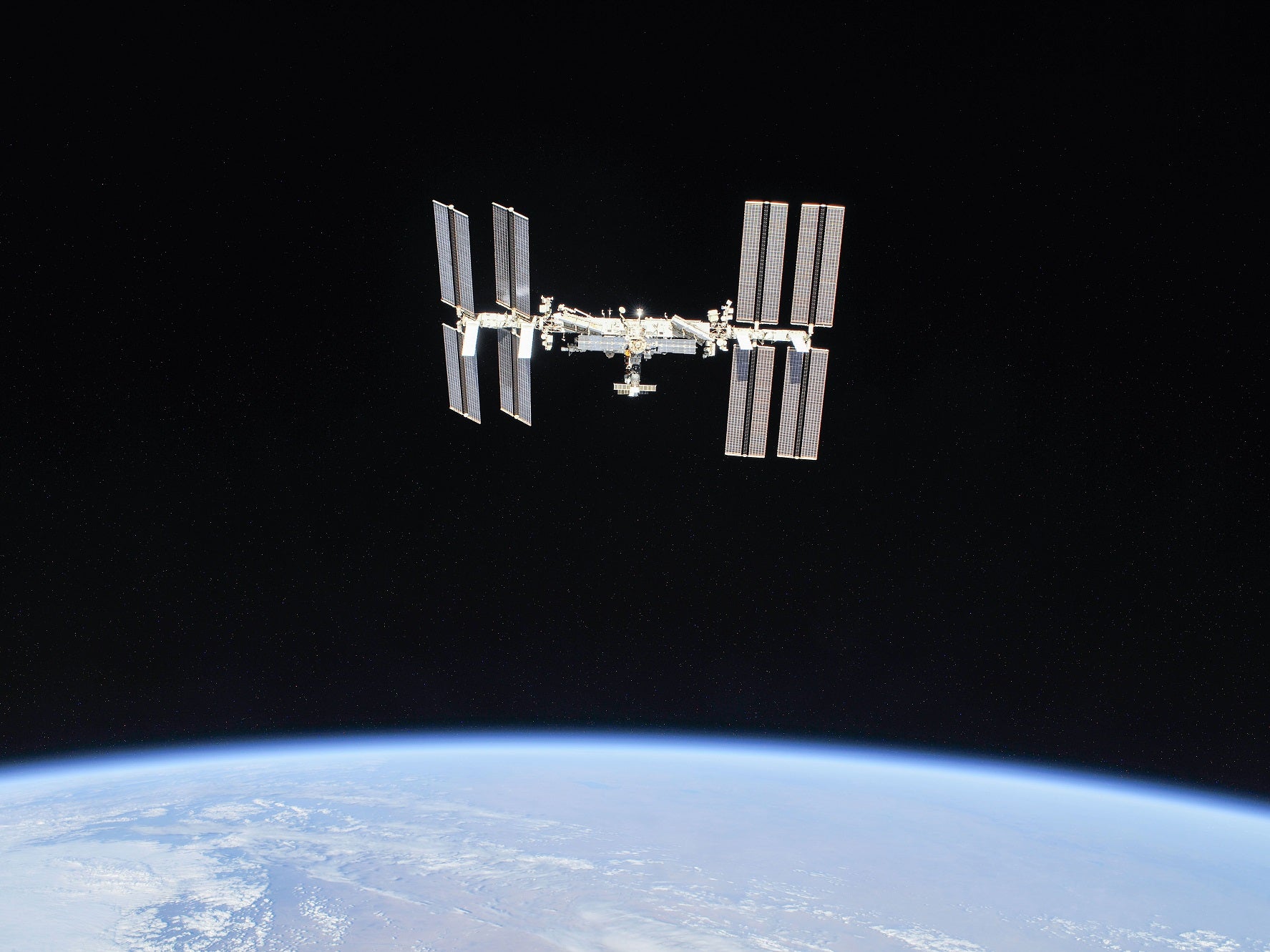Fire alarms sound on International Space Station as crew reports smoke and smell of burning
New problems come amid increasing concern over floating lab’s longevity

Your support helps us to tell the story
From reproductive rights to climate change to Big Tech, The Independent is on the ground when the story is developing. Whether it's investigating the financials of Elon Musk's pro-Trump PAC or producing our latest documentary, 'The A Word', which shines a light on the American women fighting for reproductive rights, we know how important it is to parse out the facts from the messaging.
At such a critical moment in US history, we need reporters on the ground. Your donation allows us to keep sending journalists to speak to both sides of the story.
The Independent is trusted by Americans across the entire political spectrum. And unlike many other quality news outlets, we choose not to lock Americans out of our reporting and analysis with paywalls. We believe quality journalism should be available to everyone, paid for by those who can afford it.
Your support makes all the difference.Fire alarms have sounded on the International Space Station, with the crew reporting that they could see smoke and smell burning.
The problems began early on Thursday and appears to have been overcome for now, with the team returning to rest.
It is just the latest problem for the floating laboratory, which is widely considered to be nearing the end of its lifespan. Officials have said that cracks have been found in the body of the space station, and it is suffering an increasing number of issues.
Russia’s space agency Roscosmos said the incident took place in the Russian-built Zvezda module and occurred as the station’s batteries were being recharged.
According to Roscosmos, the crew activated air filters and returned back to their “night rest” once the air quality was back to normal.
The crew will proceed with a space walk scheduled for Thursday as planned, the agency noted.
The space station is currently operated by NASA astronauts Mark Vande Hei, Shane Kimbrough and Megan McArthur; Oleg Novitsky and Pyotr Dubrov of Russia’s Roscosmos; Japan Aerospace Exploration Agency astronaut Akihiko Hoshide and European Space Agency astronaut Thomas Pesquet.
Novitsky and Dubrov are scheduled to carry out a six-hour-long space walk on Thursday to continue integrating the Russian-built Nauka science lab that docked with the space station in July.
Shortly after docking, the lab briefly knocked the orbital outpost out of position by accidentally firing its engines — an incident Russian space officials blamed on a software failure.
Additional reporting by Associated Press
Join our commenting forum
Join thought-provoking conversations, follow other Independent readers and see their replies
Comments